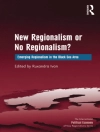Today, an international new right has coalesced. Variously described as nativist, right-populist, alt-right, and neofascist, far-right movements in many countries have achieved electoral victories that not long ago seemed highly improbable. They have also developed a new cultural politics. Adapting tactics from the left, the new right has moved from decorum to transgression; from conservative propriety to the frank sexualization of political figures and positions; from appealing to the conscious normalcy of the “silent majority” to recasting itself as a protest movement of and for the aggrieved. These movements share a mandate for robust nationalism, yet they also cultivate a striking international solidarity. Who is the subject of this ethnonationalism?
Many new right movements have in fact intensified or laid bare long-standing tendencies, but this volume seeks to address aspects of their cultural politics that raise new and urgent questions. How should we assess the new right’s disconcerting appropriations of strategies of minoritarian resistance? How can we practice critique in the face of adversaries who claim to practice a critique of their own? How do apparently post-normative versions of nationalism give rise to heightened forms of militarism, incarceration, censorship, and inequality? How should we understand the temporality of ethnonationalism, which combines a romance with archaic tradition, an ethos of disruption driven by tech futurism frequently tinged with accelerationist pathos, and a kitschy nostalgia for a hazily defined recent past, when things were “greater” than they are now?
Surveying nationalisms from Argentina, Brazil, France, Germany, India, Israel-Palestine, the United Kingdom, and the United States, Reaction Formations gives a critical account of contemporary ethnonationalist cultural politics, while drawing out counterstrategies for anti-fascist resistance.
Contributors : Tyler Blakeney, Chiara Bottici, Joshua Branciforte, Gisela Catanzaro, Melinda Cooper, Julian Göpffarth, Ramsey Mc Glazer, Benjamin Noys, Bruno Perreau, Rahul Rao, Shaul Setter, and M. Ty
Зміст
Introduction : On the Subject of Ethnonationalism
Joshua Branciforte and Ramsey Mc Glazer | 1
I. Psychic Economieies
1. Fascism Without Men: On the Gender Politics of the Radical Right
Joshua Branciforte | 23
2. Navigating Mass Psychology: The Political Myth of Trumpism
Chiara Bottici | 58
3. Challenging the Outlaw Thesis: New Configurations of Sexuality, Politics, and Aesthetics
Ty Blakeney | 88
4. The Myth of What We Can Take In: Global Migration and the “Receptive Capacity” of the Nation-State
M. Ty | 118
II. Ethnostates
5. The Return to Exile: Critical Shifts in the Age of Neo-Zionism
Shaul Setter | 145
6. The Alt-Right: From Libertarianism to Paleolibertarianism and Beyond
Melinda Cooper | 166
7. Nationalisms By, Against, and Beyond the Indian State
Rahul Rao | 190
8. Giving the Heimat a New Home: National Belonging and Ethnopluralism on the German Far Right
Julian Göpffarth | 207
III. Counterrevolutions and Culture
9. Planetary Technology and Reactionary Accelerationism
Benjamin Noys | 241
10. “The New Conservative Humanism”: Reflections on a New Ethnonational Counterrevolution
Bruno Perreau | 263
11. Authoritarian Neoliberalism and Neocolonial Subordination:
Beyond the National Question (Argentina, 2015–2019)
Gisela Catanzaro | 297
12. Gramsci’s Grave
Ramsey Mc Glazer | 324
About the Contributors | 349
Index | 353
Про автора
Ramsey Mc Glazer is Assistant Professor of Comparative Literature at the University of California, Berkeley, where he is also affiliated with the Program in Critical Theory, the Department of Italian Studies, and the Center for Latin American Studies. He is the author of Old Schools: Modernism, Education, and the Critique of Progress (2020), published by Fordham University Press in the Lit Z Series.












